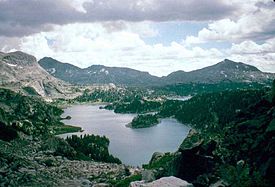I hesitate to mention this, but I know way too much about Sofia the First.
You see, we have a two-year-old boy, and while we limit his TV time, he still catches the occasional Doc McStuffins or Jake and the Neverland Pirates. And Sofia is on right after Jake, so we’ve caught bits and pieces of the show (just enough to drive me mildly insane).
Now, it turns out that Sofia is going to be the launching pad for Disney’s first Latina princess, Elena of Avalor, who is inspired by “diverse Latin cultures and folklore,” according to the good people at Disney. She will receive her own TV show next year.
Of course, the issue of diversity is a touchy one in Hollywood. Just ask Sean Penn about Hispanic representation in the film world… well, on second thought, don’t ask him anything.
In any case, Elena’s arrival shows that Hollywood is sensitive to its reputation as indifferent to ethnic minorities, and that the entertainment industry is trying to improve the representation of Hispanics in pop culture.
But everybody’s a critic. And those critics are saying it’s too little, too late.
First, there is the issue that Elena is going to originate as a sidekick, and worse, there are no plans for her to have her own movie, despite the fact that many Disney princesses of various ethnicities and races have received their own feature films. Hey, Mulan got a pair of movies over a decade ago, and Asians are even less represented in film than Hispanics. So, yeah — what gives?
The second irritation is that Elena’s exact nationality is being kept vague. By not being specific about her homeland, critics argue, Disney is failing to explore the diversity within Hispanic culture, and instead using one brown-eyed princess as an interchangeable stand-in for all Latinas.
This is where I can be of assistance. I can tell you that saying Elena is from Cuba or Bolivia or Puerto Rico would be more bizarre than anything. That’s because the setting for Sofia is a magical dreamland where unicorns run wild, and little kids take classes on how to cast spells, and cutesy-pie dragons burst into song for no reason. Yeah, it’s that annoying.
But while most of the characters speak in a whiny faux British accent, it’s not specifically European. It’s otherworldly. So if this princess from, say, Mexico, just shows up, the effect will be a little jarring.
I told you I knew too much about this damn show.
Regardless, Elena is a step in the right direction. And even if I hated the idea of a Latina princess, it wouldn’t matter, because I’m going to see her, one way or another.
Yes, at this point, I’m just looking forward to the day when my son is finally old enough for Phineas and Ferb.














